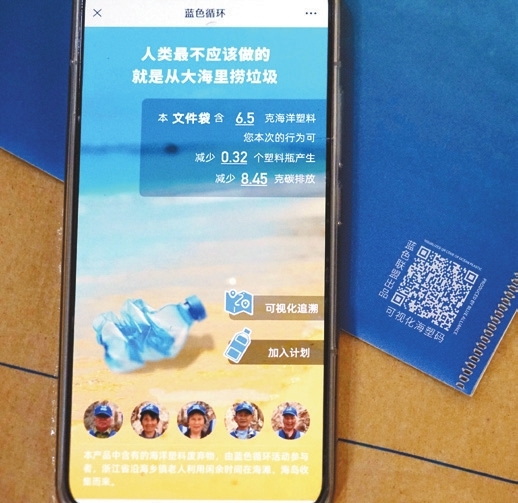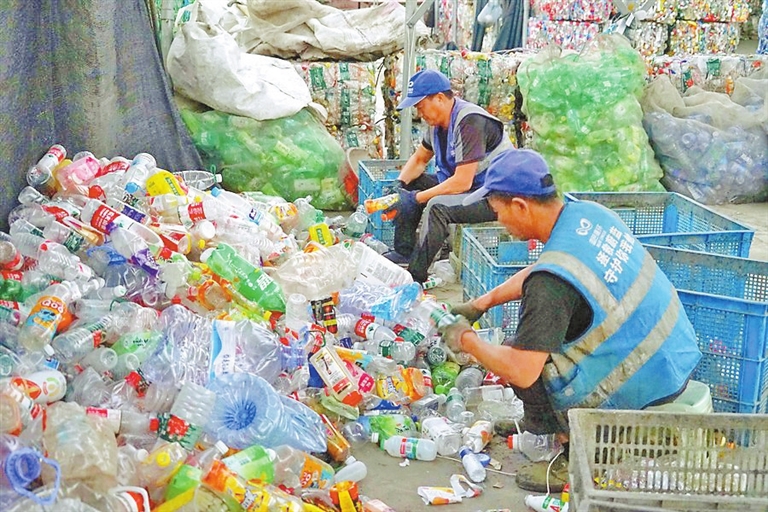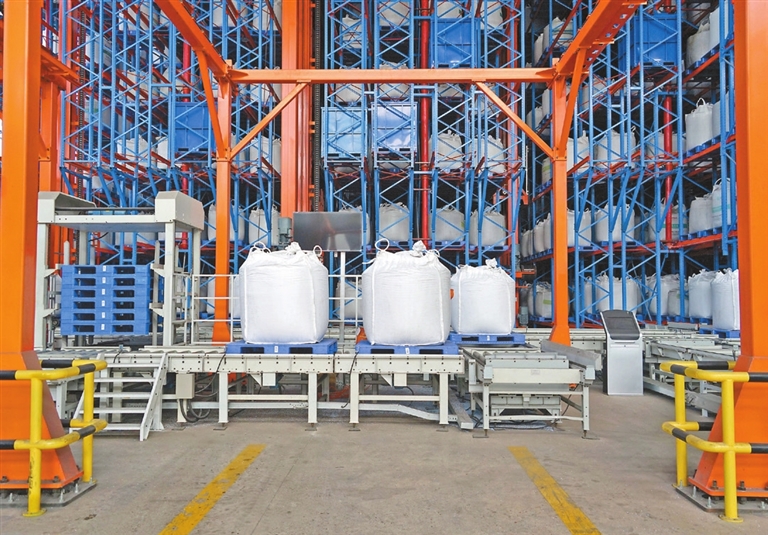



CHINA’S program to process marine plastic waste won Monday the 2023 Champions of the Earth Award, the U.N.’s most prestigious environmental recognition, for its innovative efforts to reduce marine pollution. More than 6,000 individuals and over 200 enterprises from the East China’s Zhejiang Province contributed to the program. The Blue Circle program integrated such technologies as the Internet of Things and blockchain. The program that traces the recycling of marine plastics brings income to the participating fishermen while effectively cutting down pollution in coastal waters. “The Champions of the Earth Award is the United Nations’ highest environmental honor. As an award winner, Blue Circle sets an inspiring example for governments, businesses and communities around the world who want to take action to reduce plastic pollution,” said Tu Ruihe, head of the U.N. Environment Program (UNEP) China Office. An ingenious solution According to UNEP, the award recognizes pioneering leaders from government, civil society, academia and the private sector for their transformative impacts on the natural world. This year, Blue Circle stands out from around 2,500 nominations for the award. “Blue Circle is a worthy nominee and winner of the 2023 Champions of the Earth Award, which focuses on advancing the fight against plastic pollution,” Tu said. The marine waste treatment model, initiated by the Department of Ecology and Environment of Zhejiang Province and Zhejiang Lanjing Technology Co., Ltd., encourages the public to collect marine debris and enables individuals to visually monitor the whole process of sustainable waste management from recycling to reuse. A fund was also established to ensure that the profits of selling the products made from recycled plastics would benefit those who collected the waste. Since the beginning of the project, more than 61,600 people have participated, and a total of about 10,936 tons of marine debris have been collected, including about 2,254 tons of plastic waste, according to Lang Wenrong, director of the Ecological Environment Department of Zhejiang Province and a co-founder of Blue Circle. A UNEP report released in 2021 warned that without action, the amount of plastic waste flowing into marine areas will nearly triple by 2040, with an additional 23-37 million tons of plastic waste in the ocean each year, equivalent to 50 kilograms of plastic waste for every meter of coastline in the world. “Blue Circle participants give us hope that we can tackle plastic pollution and remind us that protecting nature is key to achieving sustainable development,” said Sheila Aggarwal-Khan, director of the Economy Division of the UNEP. A model project In Taizhou City, Zhejiang Province, 74-year-old fisherman Chen Xiafang earned extra income over the past six months. “Every day, I spend my spare time picking up plastic waste on the coastline and sending it to Little Blue House, which earns me a monthly income of around 700 yuan (US$96),” Chen said. The Little Blue House is a garbage treatment site responsible for recycling and sorting marine plastic waste. A few days ago, Huang Zhiwei, a boatman who returned home with a full load of fish to be sold in the market, also sent a large bag of plastic garbage he picked up on the coast to the Little Blue House. The plastic waste will be re-produced into high-value, ecologically and environmentally friendly products, whose sales revenues will be distributed to the people participating in recycling. Chen Guanghui, co-founder of Zhejiang Lanjing Technology Co., Ltd., said Blue Circle also includes a source tracing system for recycled plastic particles based on blockchain, solving a traditional problem that used to discourage enterprises from purchasing recycled plastics. For instance, it’s now easy to trace the raw material for a mobile phone case made of recycled plastic. By scanning a QR code on this product, one can view the information regarding the recycling, transportation, storage, and manufacturing of the raw materials. Blue Circle records the whole process of the marine plastic treatment, provides comprehensive information for tracing the production and ensures transparency in the industry, said Fu Xianwei, co-founder of the program. Since 2022, Fu’s company has processed about 6 million plastic bottles, and the recycled materials have been widely used in packaging, industrial manufacturing, clothing and home textiles. “The digital innovation is impressive,” said Tu, adding that consumers can better understand the process of plastic waste treatment from disposal to remanufacturing and resale, which is essential to improving transparency, boosting the circular economy and reducing the purchase of plastic products. Huge potential Zhejiang Province, located in the middle of China’s eastern coastline, has a sea area of 260,000 square km. While coastal residents see their incomes grow with the boom of island tourism and offshore aquaculture, the garbage from near-sea sources has also increased. Thinking of ways to find participants and funding and create a brand new marine debris management model, Blue Circle has provided a sustainable solution to plastic treatment and effectively reduced coastal pollution in the province. Statistics show that after introduction of the Blue Circle project, water quality in Zhejiang’s coastal areas improved greatly. As Blue Circle is being introduced to other parts of China, more than 200,000 ships, tens of thousands of coastal residents and tens of thousands of enterprises are expected to benefit by participating in marine debris recycling activities. Tu believes Blue Circle would significantly contribute to global marine protection and economic development. The program has attracted the attention of environmental protection advocates and industry insiders during international exchanges and cooperation, providing a good example in marine plastic pollution control and resource recycling. “As an award winner,” Tu said, “Blue Circle’s success story will be shared with global audiences in various languages.” (Xinhua) | 
